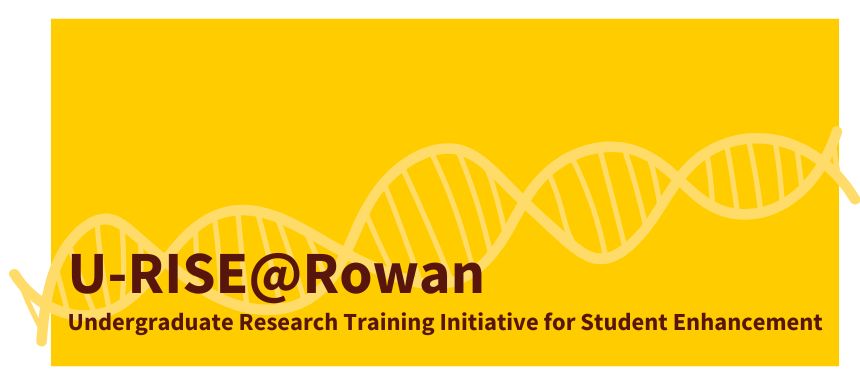U-RISE
U-RISE
U-RISE@Rowan
Undergraduate Research Training Initiative for Student Enhancement
U-RISE@Rowan is a comprehensive NIH-funded biomedical research training program that seeks to promote broad participation in the biomedical research workforce by strengthening research training environments and expanding the pool of well-trained students that pursue research careers. We do this by providing mentorship, community, and holistic educational support. The ultimate goal of the program is to prepare undergraduate students interested in research careers for competitive entry into research-focused graduate programs (e.g., PhD, MD/PhD, DO/PhD, MPH/PhD).
How to Apply
Benefits of U-RISE
Undergraduate research student trainees engage in biomedically relevant research, training and career development workshops, and coursework that builds their practical and professional skills. For most U-RISE Fellows, training starts in the summer after freshman year and proceeds through graduation.
In addition to focused mentorship and research training, U-RISE Fellows also receive significant financial support, including:
- year-round stipend
- a partial scholarship for tuition & fees
- health insurance
- conference travel funds
- sponsored summer research experience at an external research institution
U-RISE@Rowan also sponsors invited speakers, research colloquia, and a variety of career development workshops that are open to all interested undergraduate biomedical and STEM research students.
Eligibility Requirements
You must be a U.S. citizen or permanent resident AND majoring in a STEM field. Students must maintain full-time enrollment while at Rowan and achieve a measure of classroom success that will prepare them for graduate studies. Applications to this program are open to every eligible student and we especially encourage applications from students that the NIH has identified.

